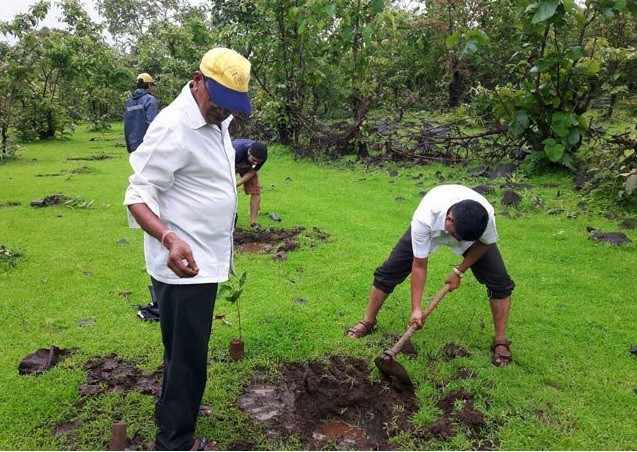APRIL 4: Jammu and Kashmir has successfully met its ambitious target of planting 150 lakh seedlings under the ‘Ek Ped Maa Ke Naam’ campaign, marking a significant milestone in the region’s efforts toward environmental sustainability. Javed Ahmed Rana, the Forest, Ecology, and Environment Minister, lauded the achievement, attributing it to the collective efforts of government agencies, village-level institutions, local communities, and various stakeholders.
The primary objective of the ‘Ek Ped Maa Ke Naam’ campaign was to combat land degradation and promote the restoration of degraded land for a more sustainable future. Rana emphasized that the campaign aligns with broader goals for sustainable development, focusing on environmental preservation and climate resilience. He also praised the role of the Forest Department in leading the initiative, highlighting how tree plantation campaigns not only contribute to environmental health but also raise public awareness about the importance of afforestation.
Launched nationwide, the ‘Ek Ped Maa Ke Naam’ campaign encourages people to plant a tree as a symbol of love, respect, and honor for their mothers, while pledging to protect the environment. In Jammu and Kashmir, the Forest Department led the initiative, successfully planting a total of 1,50,18,803 saplings. The initiative involved a diverse group of participants, including students, non-governmental organizations (NGOs), security forces, government departments, citizens, and nature lovers.
Out of the total number of saplings, 91 lakh plants were planted on both forest and non-forest lands, while 59 lakh plants were distributed to various stakeholders for planting in different locations across the Union Territory. Notably, the Mata Vaishno Devi Shrine Board contributed over one lakh plants, and approximately two lakh plants were distributed during Eid-ul-Fitr.
Javed Rana took the opportunity to acknowledge the contribution of all sections of society in achieving this target. He noted that the active participation of local communities was crucial to the success of the initiative, reinforcing the importance of collective commitment toward enhancing green cover and promoting environmental stewardship. “It was heartening to see how enthusiastically people embraced the campaign, reinforcing the importance of environmental stewardship for the well-being of future generations,” Rana said, emphasizing that without the active involvement of local people, the campaign’s success would not have been possible.
Additionally, during the campaign, the Forest Department undertook efforts to sensitize locals about the critical role of tree plantation in combating climate change and enhancing greenery, further strengthening the public’s commitment to sustainability.




















